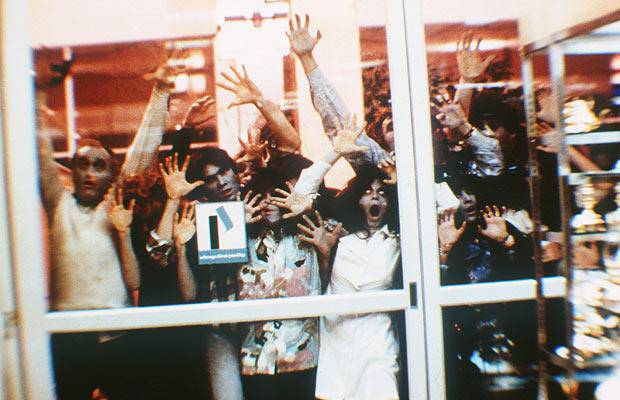This article is more than 1 year old
CONSUMERISM IS PAST ITS SELL-BY DATE: Die now, pay later
The customer was always right
And now it's time for a message from our sponsors
There is an interesting and beautiful symmetry in the relationship between National Debt and consumerism. In order to see that symmetry, it may be useful to consider some physical analogies. A boat stays afloat through buoyancy, just as an airship stays aloft. No energy is required in either case because these are static conditions. On the other hand a water skier stays above the water on account of dynamic lift, just as an aerodyne stays aloft, provided it remains above stalling speed. In both cases, continuous dissipation of energy is required.
Money is rather like energy. If the money you have is real wealth, then no effort is required to keep it and you are in a static condition. On the other hand, if the money you have is borrowed, then the interest has to be paid and you are now in a dynamic condition; continuous effort is required to stay afloat. The aptness of the term should not be missed.
When a government has borrowed, it needs to increase taxes or suffer a budget deficit. Raised taxes on producers reflect in reduced profits; they are forced to increase turnover to maintain profits. The question becomes one of how to do this with a fixed customer base. The answer is that purchasing has to be turned from an event into a process so that the customer no longer purchases a single item that will, with a little attention, serve his needs indefinitely, but instead becomes a consumer who is induced to purchase on a regular basis.
The inducements to be a consumer are many and varied, but once the pattern is understood, all becomes obvious. Goods are designed to be unmaintainable so they fail quickly and are then found to be unrepairable, or are repaired by the replacement of modules containing considerably more than just the failed part. A lot of tablet computers are welded together so the battery cannot be replaced. When the battery dies, it has to be binned.
Nothing should be offered for sale as a one-off purchase if, instead, it can be made to be part of an ongoing contract or service. In addition to physical planned obsolescence, goods are subject to regular and spurious changes of styling so that it is obvious if something is not new. The implication is clear: only a loser would be seen with old stuff.

Zombies in search of a 'meaty bargain' in George A Romero's seminal 1978 movie Dawn of the Dead
Wherever possible, a product must depend on regular supplies of something so that it still works. Printers need cartridges, cars and heating boilers need fuel and so on. The more the merrier, so there is no incentive to energy efficiency, just the reverse, in fact, because these supplies can be taxed. The little progress that has been made towards energy efficiency has come from outside the economic system.
Interestingly, or scandalously according to viewpoint, manufacturers are seeing energy efficiency within their factories as a way of saving on the build cost of products, leading to greater profit, but the products themselves do not need to be energy efficient in use and generally are not.
The insidious and carcinogenic grip of marketing is also easy to see. Nothing is simple any more and it is impossible to choose which version of a product is right. People buy the more expensive version because the one thing most people will need has deliberately been omitted from the cheaper model. It’s like playing chess.
The language becomes Orwellian too. We are told we can “save” by spending. I never did figure that one out. Saving is achieved by not spending. “New” becomes synonymous with “better”, even though the reverse is usually the case. “What the consumer wants” means: what we are going to ram down his throat without asking him. “Labour-saving” devices are wonderfully oxymoronic as the poor purchaser has to work harder to buy them.
The myth of leisure was invented to encourage consumers to do even less for themselves, and so that a new class of consumer goods could be created to bring meaning to doing nothing useful. Special pre-prepared meals that can be heated up in seconds so as not to cut in to the television watching. Many think that the screen saver was invented by the IT industry, but television beat them to it. It’s what is broadcast between the commercials.
The consumer is really in a lose-lose situation – on the one hand, he receives absolutely no school education about the basics of economics and, on the other hand, he is exposed to a raft of emotively crafted propaganda in the media. Here, the actual specification of the product becomes irrelevant because the message is basically that people who buy this product get their oats. So does an ass.
For a government in a fix, tax revenue could be increased by encouraging consumers to borrow, so it should come as no surprise that previous, and sensible, restrictions on borrowing were relaxed. The symmetry that requires the debt-ridden government to create consumers goes beyond evolving from the static to the dynamic at both ends of the process. It follows that in order to be a better consumer it is necessary to borrow, so the banks also win at both ends of the system.
